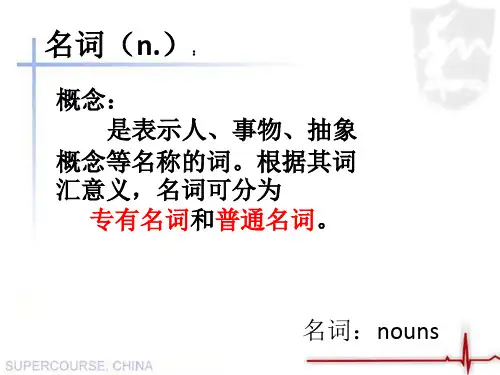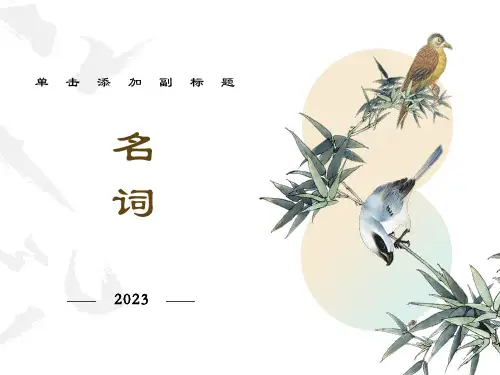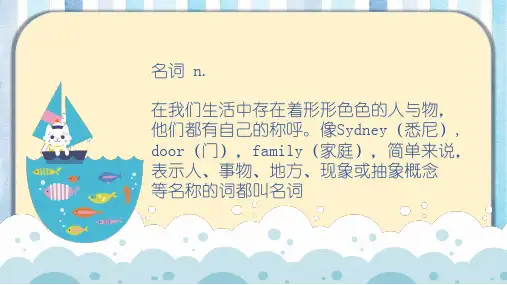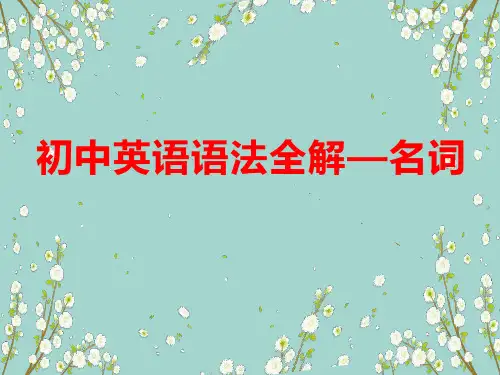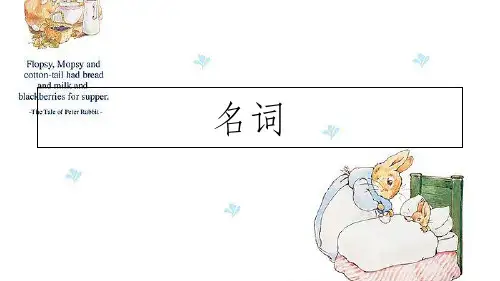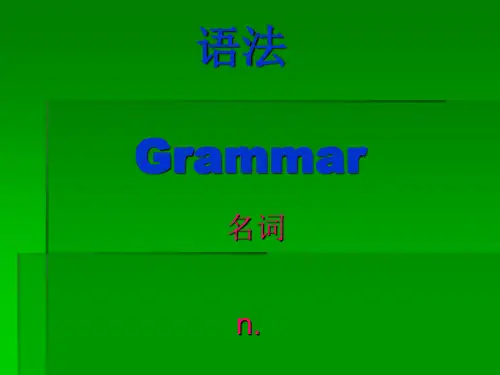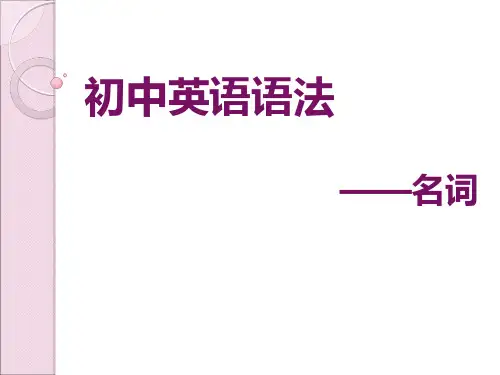(3)各国人的变化: 口诀“中日瑞不变,英法变中间,其他s加后边” 解析:“中日瑞不变” Chinese单复一致、Japanese单复一致、Swiss单复一致 解析:“英法变中间” Englishman,Frenchman变中间,或 English、French保持单复不变; 解析:“其他s加后边” 排除中日瑞英法之外的,都直接加“s”; Australians Germans Greeks希腊人 Americans (4)以o结尾的词:通常加-s 个别加-es:negro—negroes hero→heroes potato→potatoes tomato→tomatoes (黑人英雄爱吃土豆和西红柿)
以-y结尾的:辅音字母加y结尾,改y为i再加-es; story→stories family→families 元音字母加y结尾,直接加-s boy→boys day→days 部分以f或fe结尾的词:把f、fe改为v,再加-es (半片树叶自己黄,妻子拿刀去杀狼,架后小偷逃命忙) half leaf self wife knife wolf shelf thief life
许多
A lot of/lots of
A lot of/lots of
许多
注意
People 是集体名词,但当民族讲时可以用复数Peoples
以复数形式出现的书名,剧名报纸杂志名也是为单数
例如:The Arabian is a very interesting story-book 一千零一夜是一本非常有趣的故事书
is
is
is
is
am
NOUN.
指点迷津
6. Maths ______(are, is ) hard to learn for the boy. 7. They are all _______________( woman, teachers ; women teachers). 8. The population of China _______(are, is ) over 1,300,000,000. 9. There are many ______(peoples,people )in the street in summer. 10. One of the students ______(have, has) gone to Shanghai.
